New
Click-to-Instagram Direct Ads

The evolution of e-commerce has fundamentally shifted shopping habits, propelling mobile and messaging apps to the forefront of customer engagement.
By integrating WhatsApp with e-commerce systems like Shopify, businesses can automate customer interactions, from order confirmations to shipping alerts, catering to the modern consumer's demand for speed and convenience. This integration simplifies managing customer inquiries and customizing marketing strategies, enhancing the overall customer experience.
The platform's popularity and ability to facilitate personal, secure, and instant communication positions WhatsApp as the go-to channel for businesses. Its comprehensive features support a wide range of interactions, from multimedia messaging to automated chatbots, fostering customer satisfaction and loyalty. Given the mobile-first preference of today's consumers, WhatsApp's role in business communication is not just beneficial but essential, providing a direct link to customers on their most used devices.
In summary, WhatsApp's universal adoption, coupled with its advanced functionalities, secure environment, and seamless integration with business systems, renders it an unmatched tool for companies looking to excel in the digital communication realm and prioritize it as their main channel for engaging with customers.
Implementing WhatsApp for e-commerce use cases involves a blend of automated and manual triggers, relying on a solid integration between Shopify, the WhatsApp Business API, and tools like QuickReply for CRM, marketing automation, inventory management, and customer service. Below are some use cases that could be triggered, noting where additional systems might work in tandem with QuickReply, Shopify, and WhatsApp.
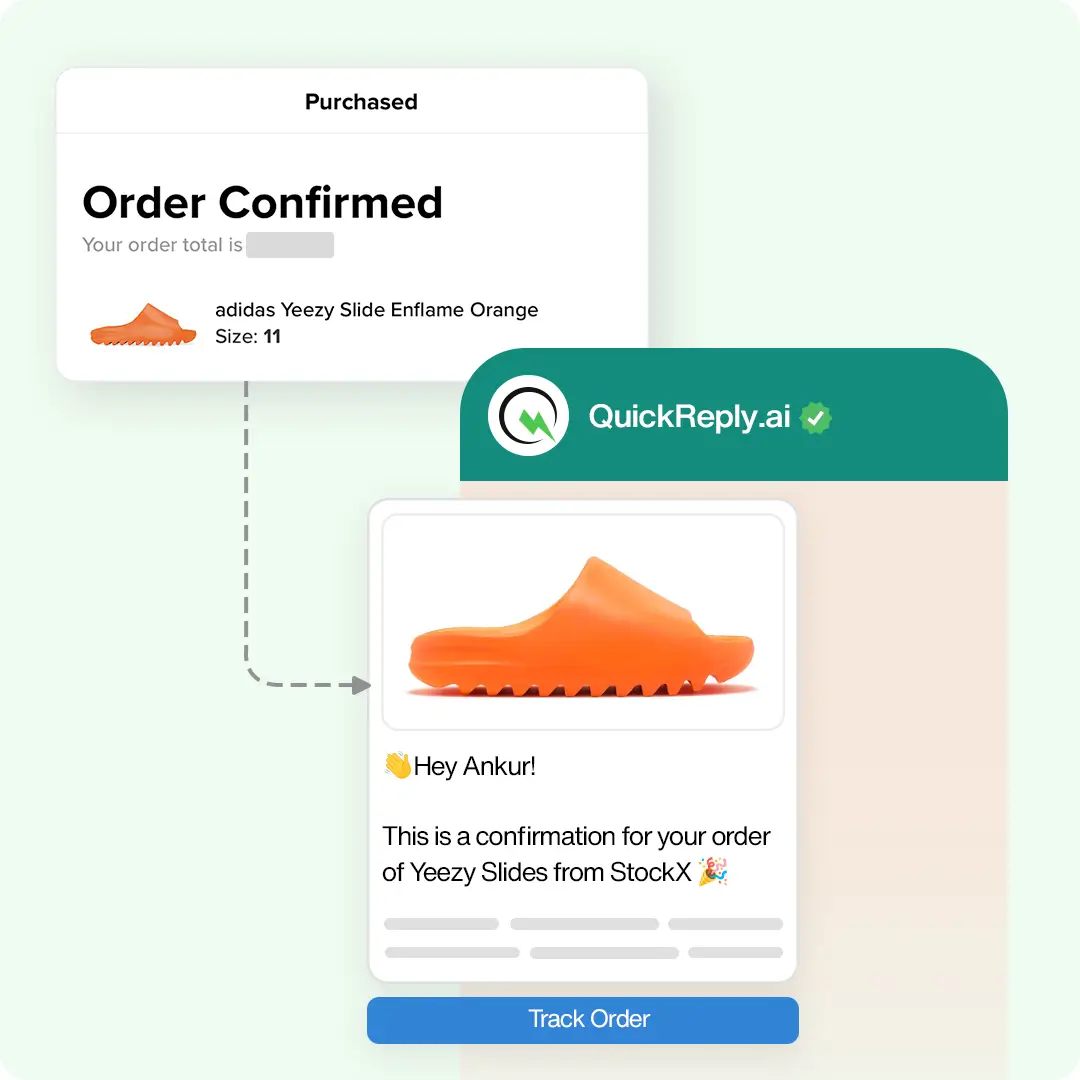
2. Shipping Updates: Integration with Shopify's shipping information updates to trigger real-time notifications through QuickReply + WhatsApp API.
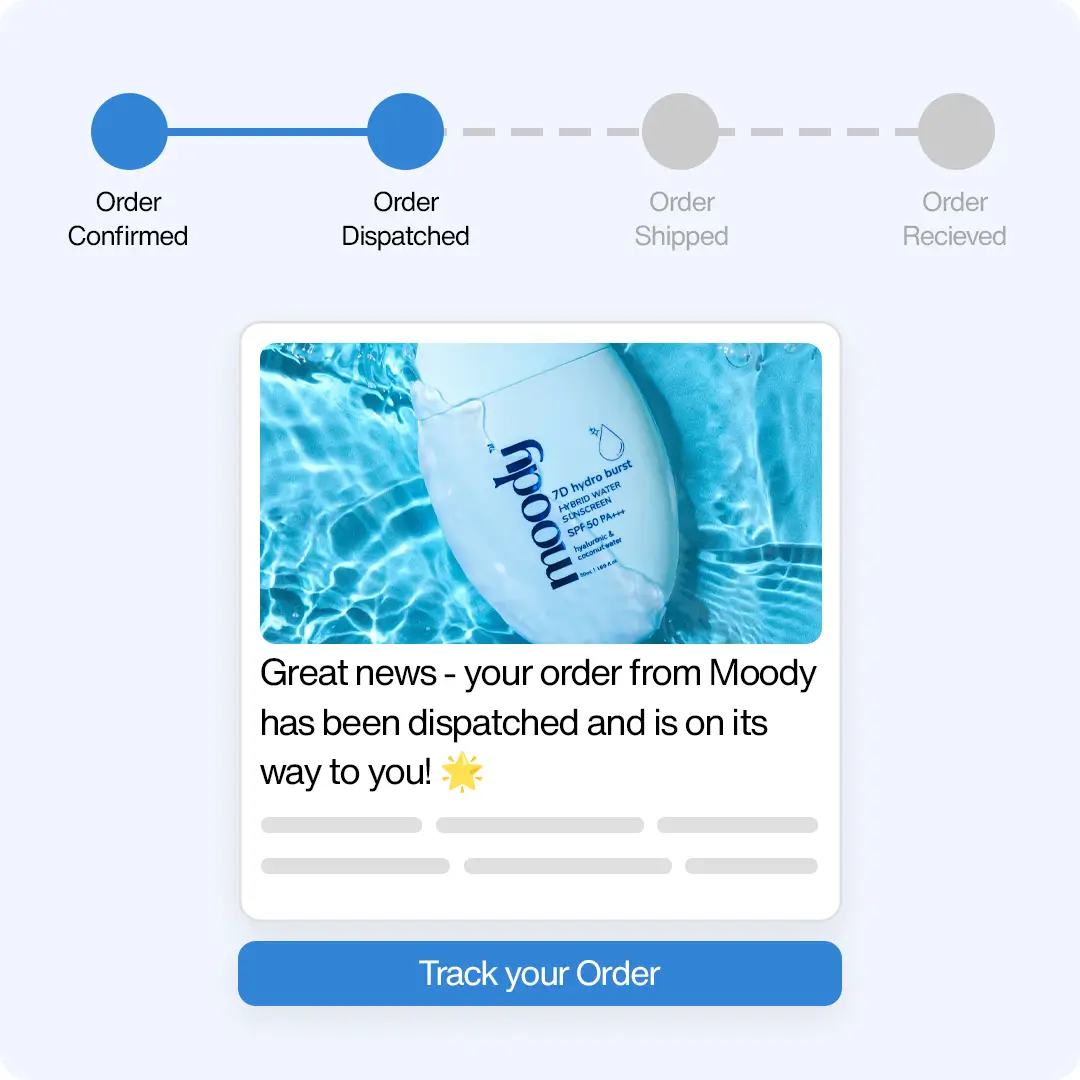
3. Customer Support: Use a customer service platform like Zendesk, integrated with Shopify, to trigger WhatsApp messages based on support tickets.
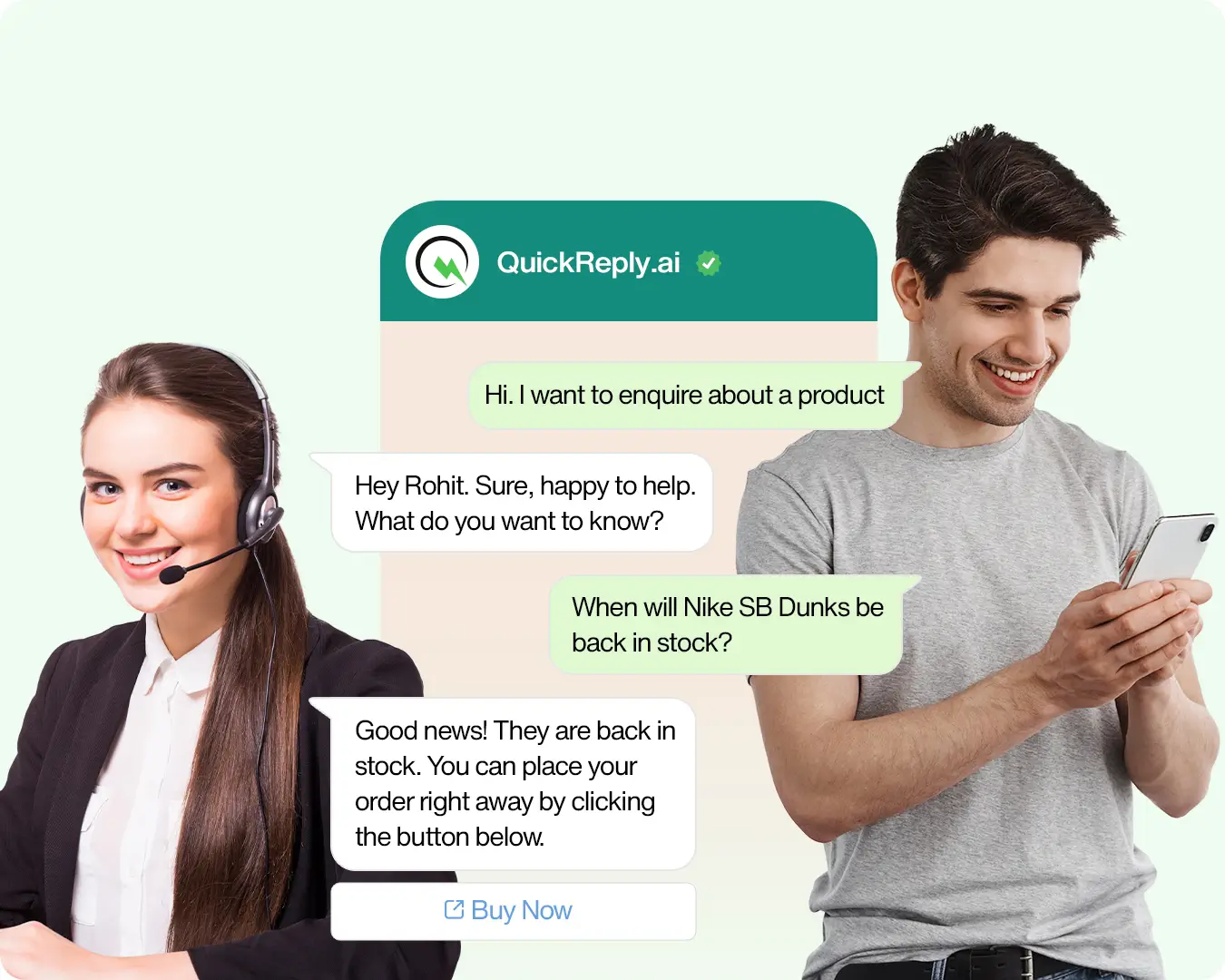
4. Product Recommendations: A CRM tool like QuickReply analyzes purchase history in Shopify to trigger personalized recommendations sent via WhatsApp.
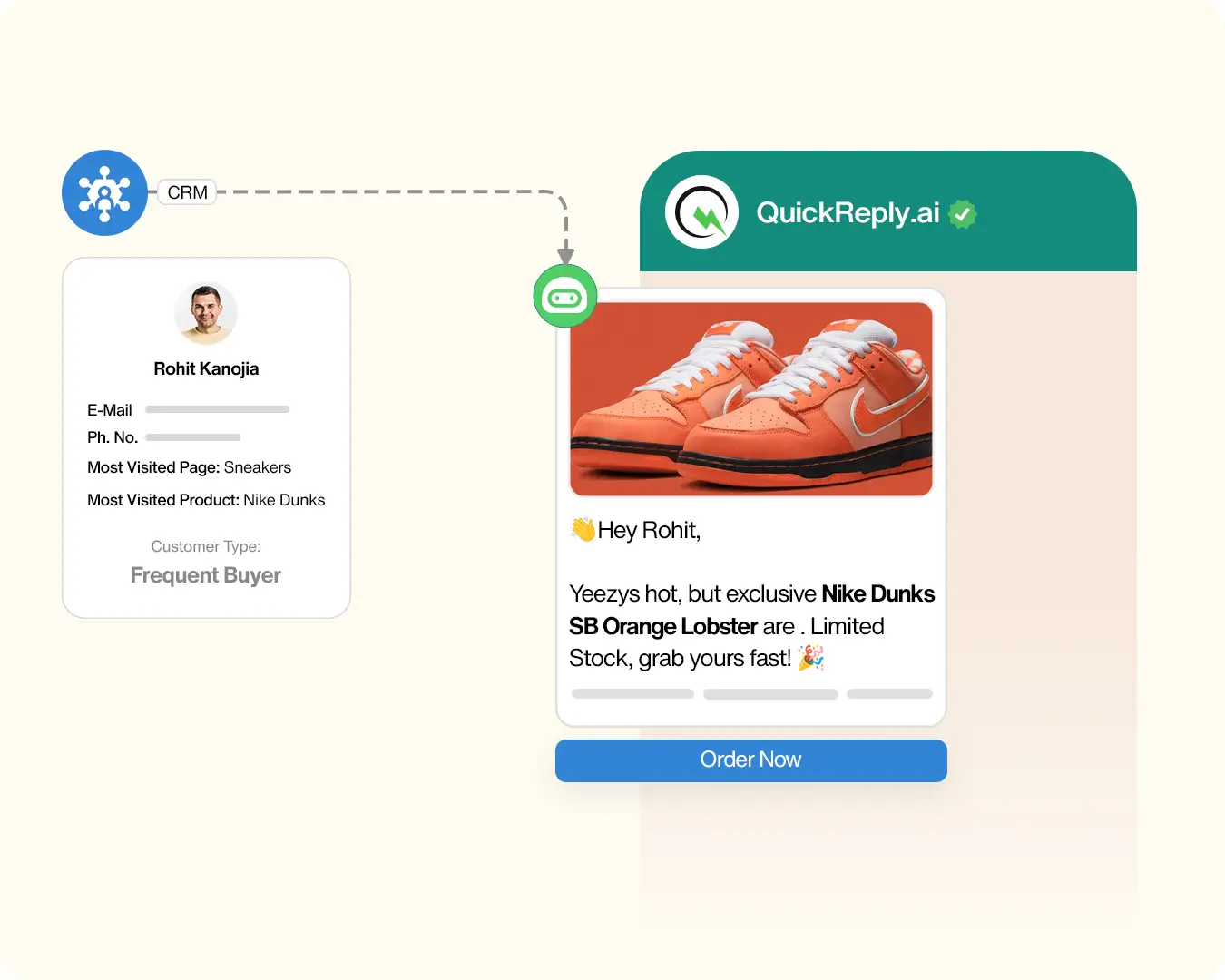
5. Feedback Requests: Post-delivery, an automated trigger from Shopify prompts a WhatsApp message soliciting product feedback.
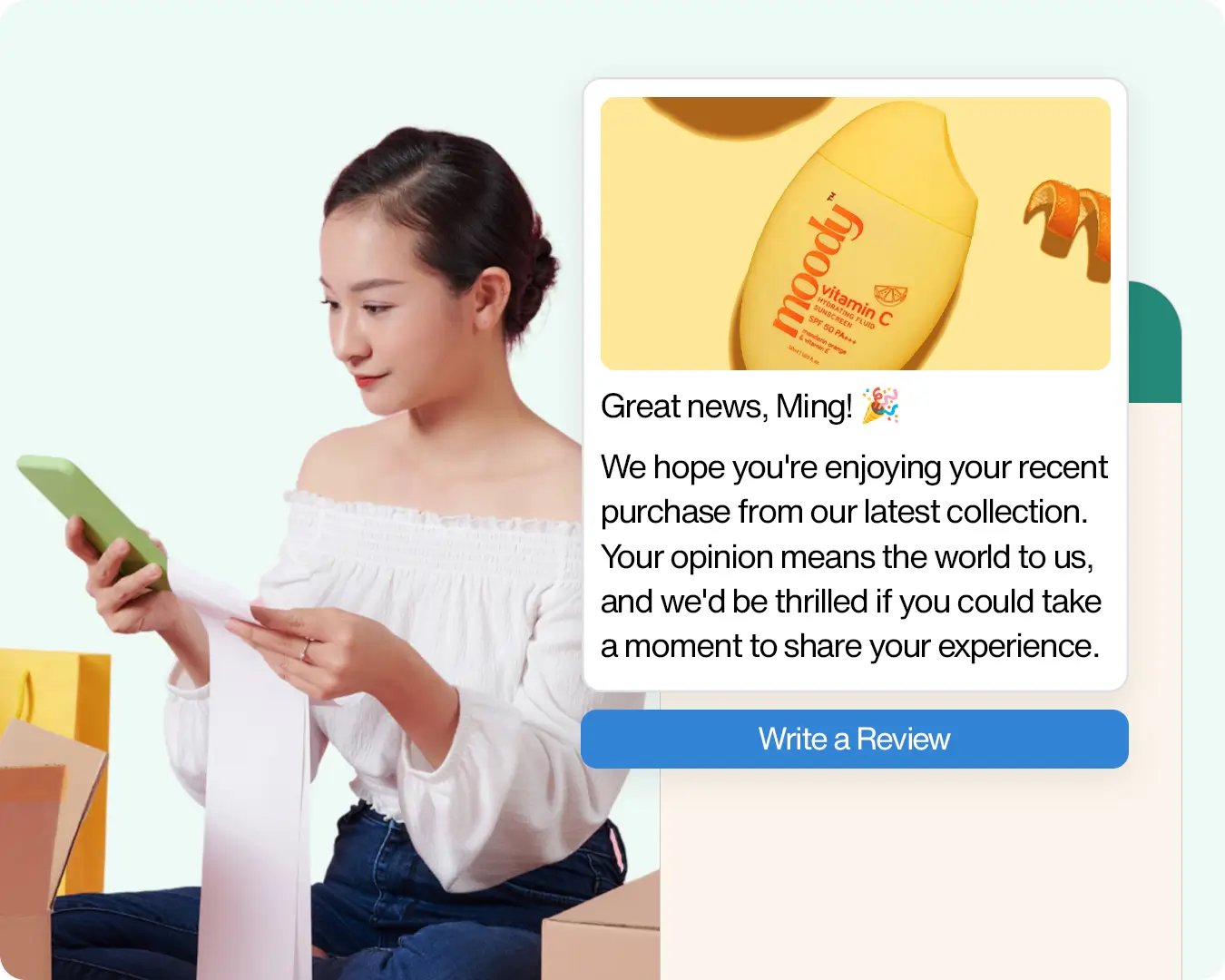
6. Returns and Exchange Processes: Triggered by a customer request through WhatsApp, initiating a Shopify return or exchange workflow.
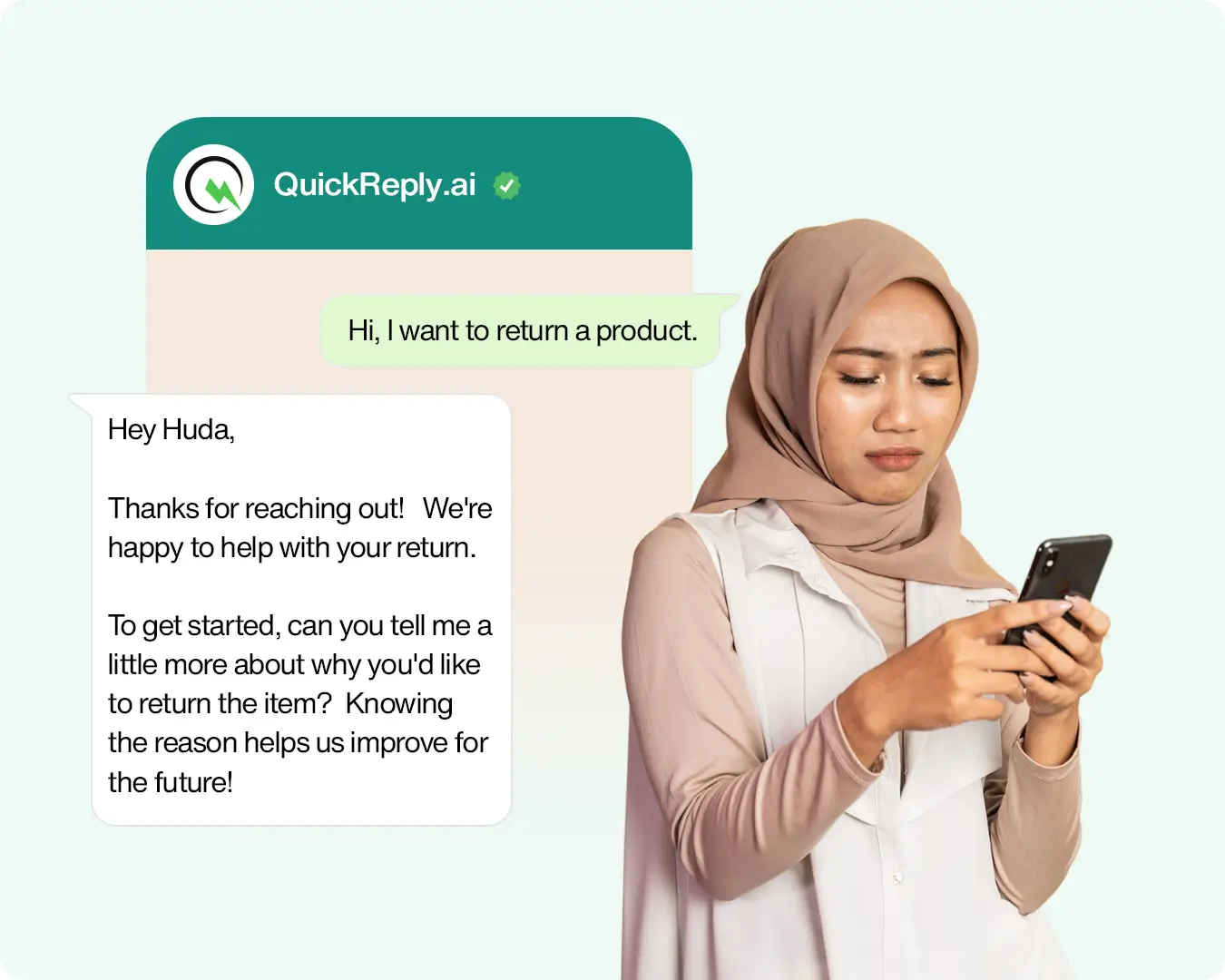
7. Re-engagement Campaigns: CRM software identifies inactive customers from Shopify data, triggering re-engagement messages through WhatsApp.
8. Loyalty Program Updates: Loyalty management software, integrated with Shopify, triggers WhatsApp notifications for rewards and points updates.
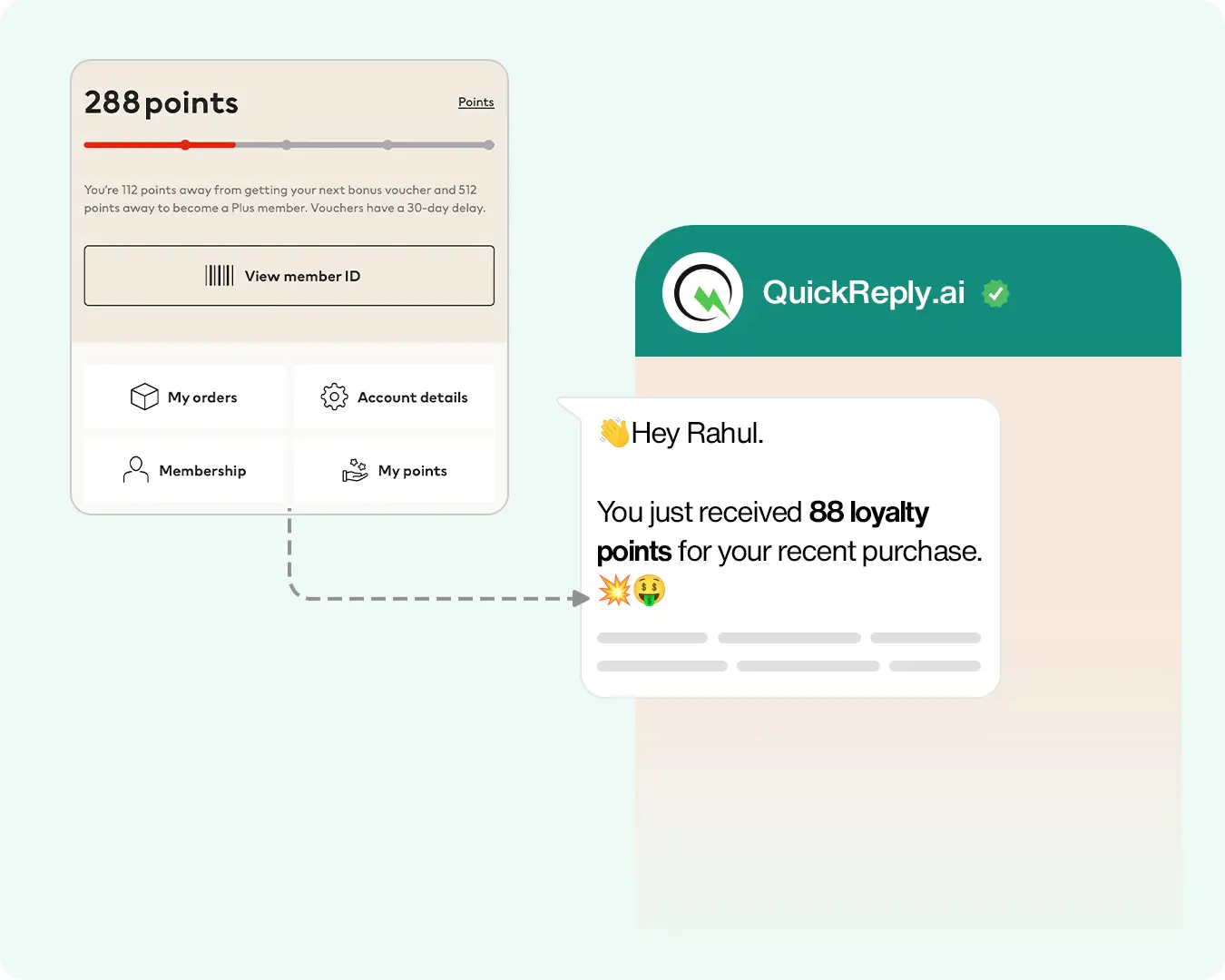
9. Restock Alert: Shopify inventory management triggers an alert through WhatsApp when products are restocked.
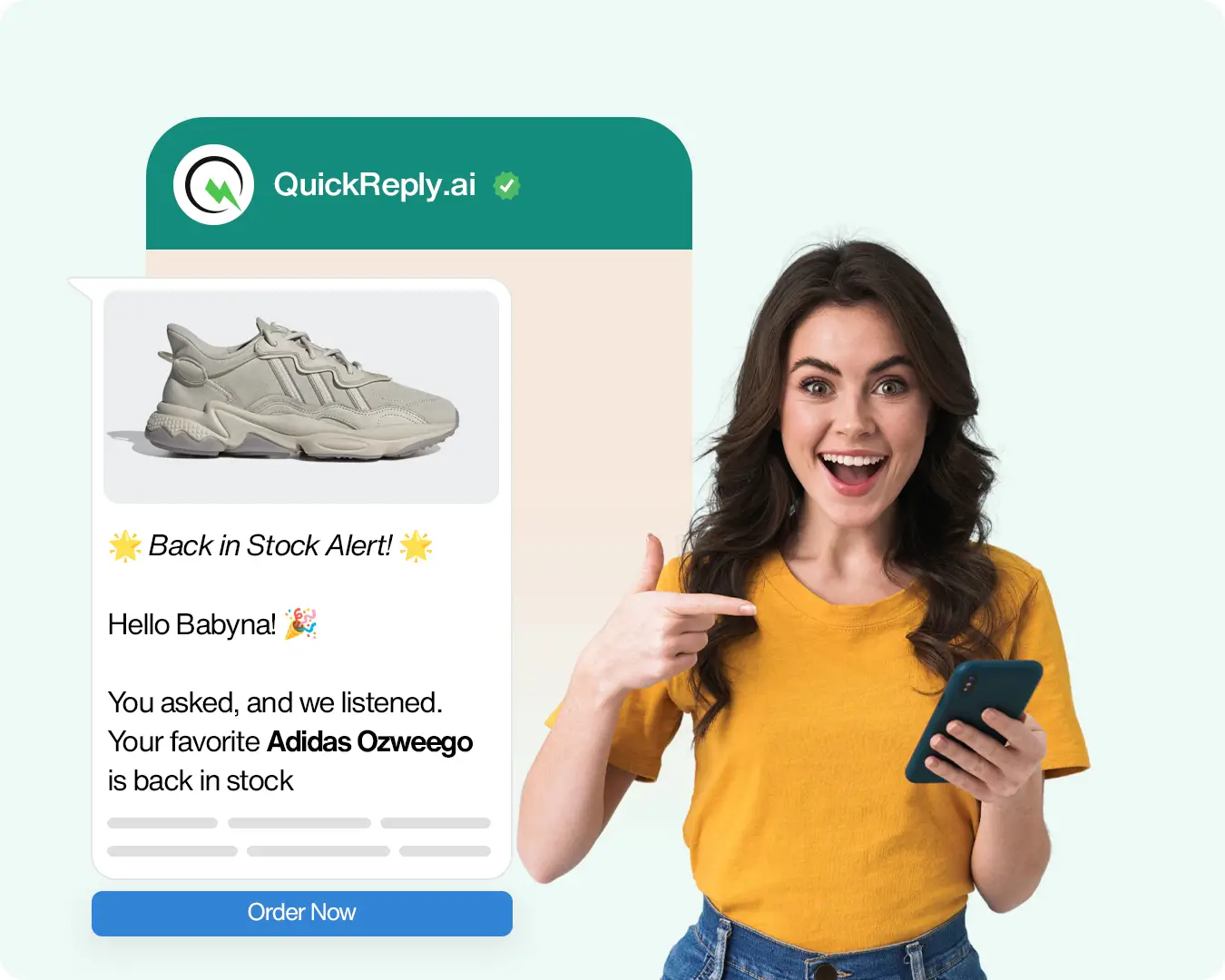
10. Flash Sale Notifications: Marketing automation tools schedule and trigger WhatsApp messages for flash sales based on Shopify events.
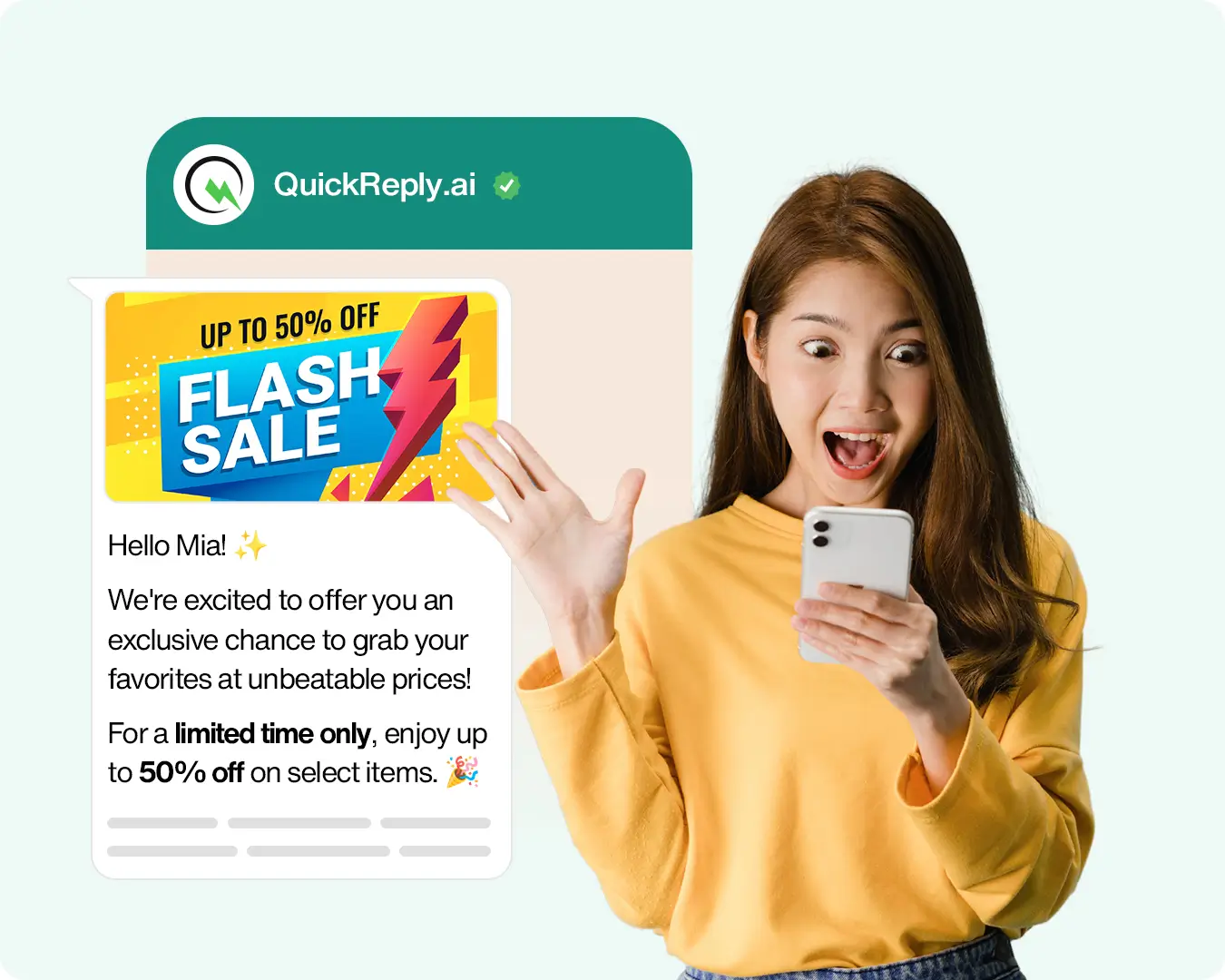
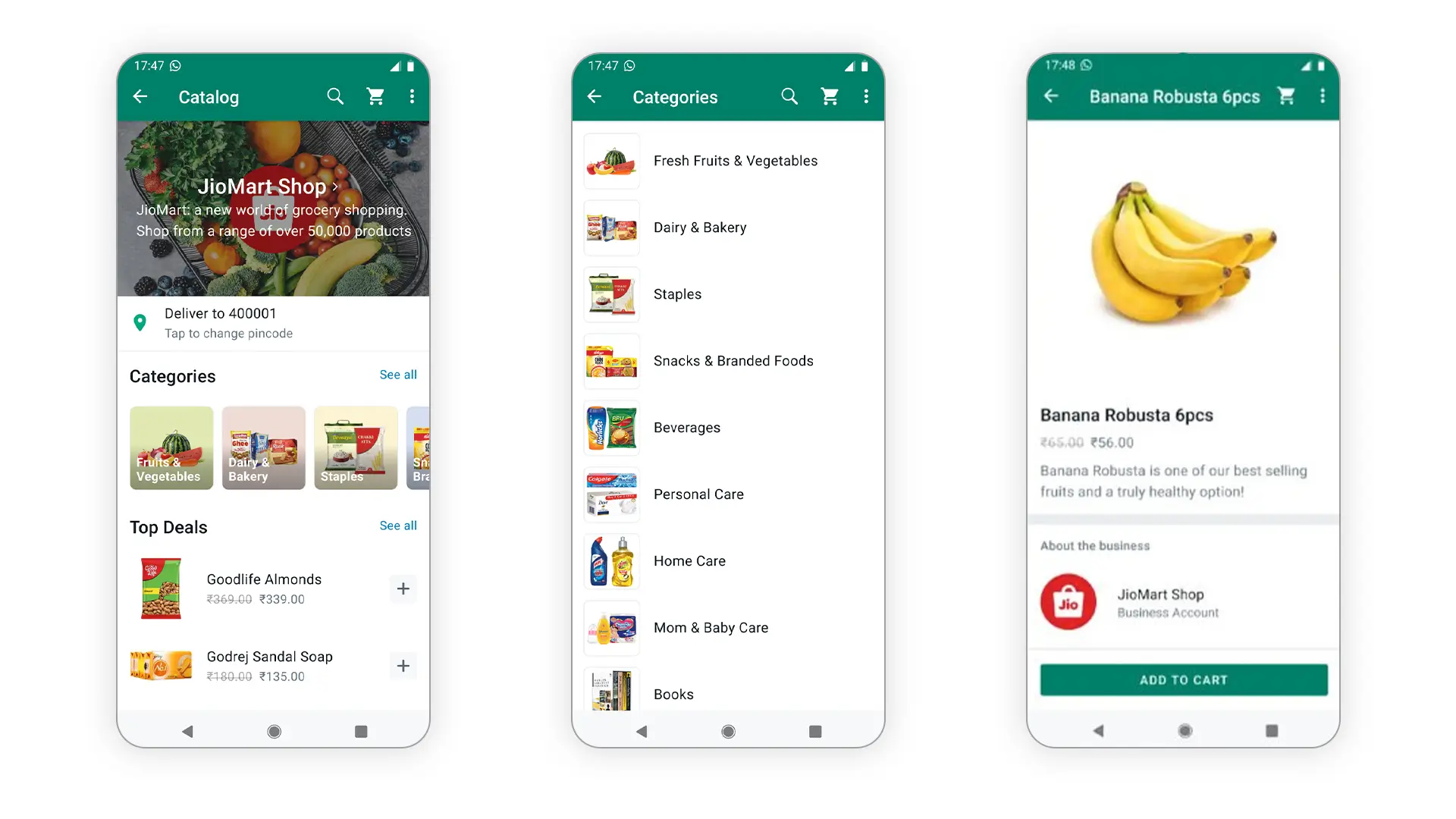
2. Video Demonstrations: A content management system (CMS) linked with Shopify triggers WhatsApp messages sharing new product videos.
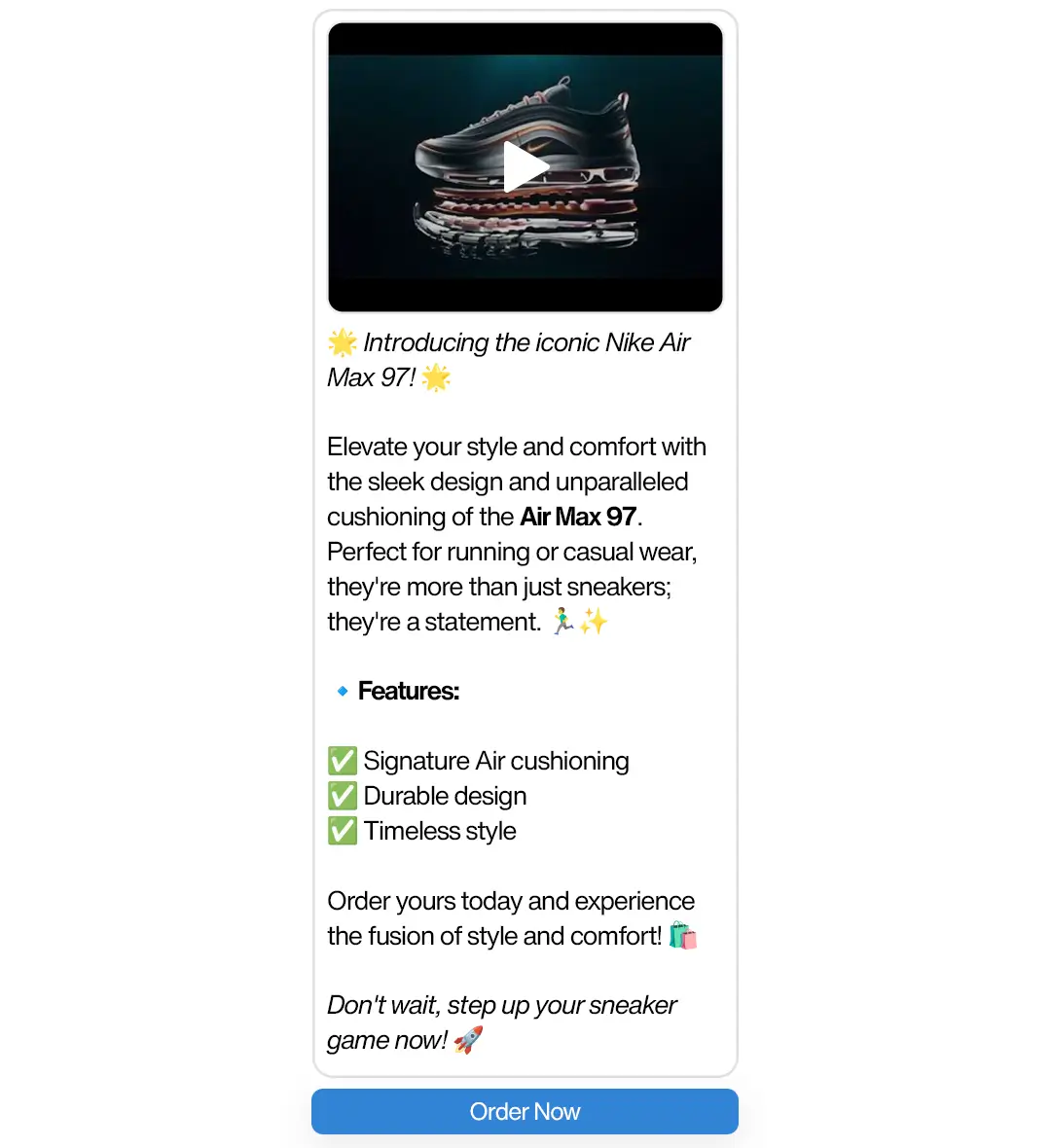
3. User-generated Content: Social proof platforms aggregate user content and trigger sharing through WhatsApp.
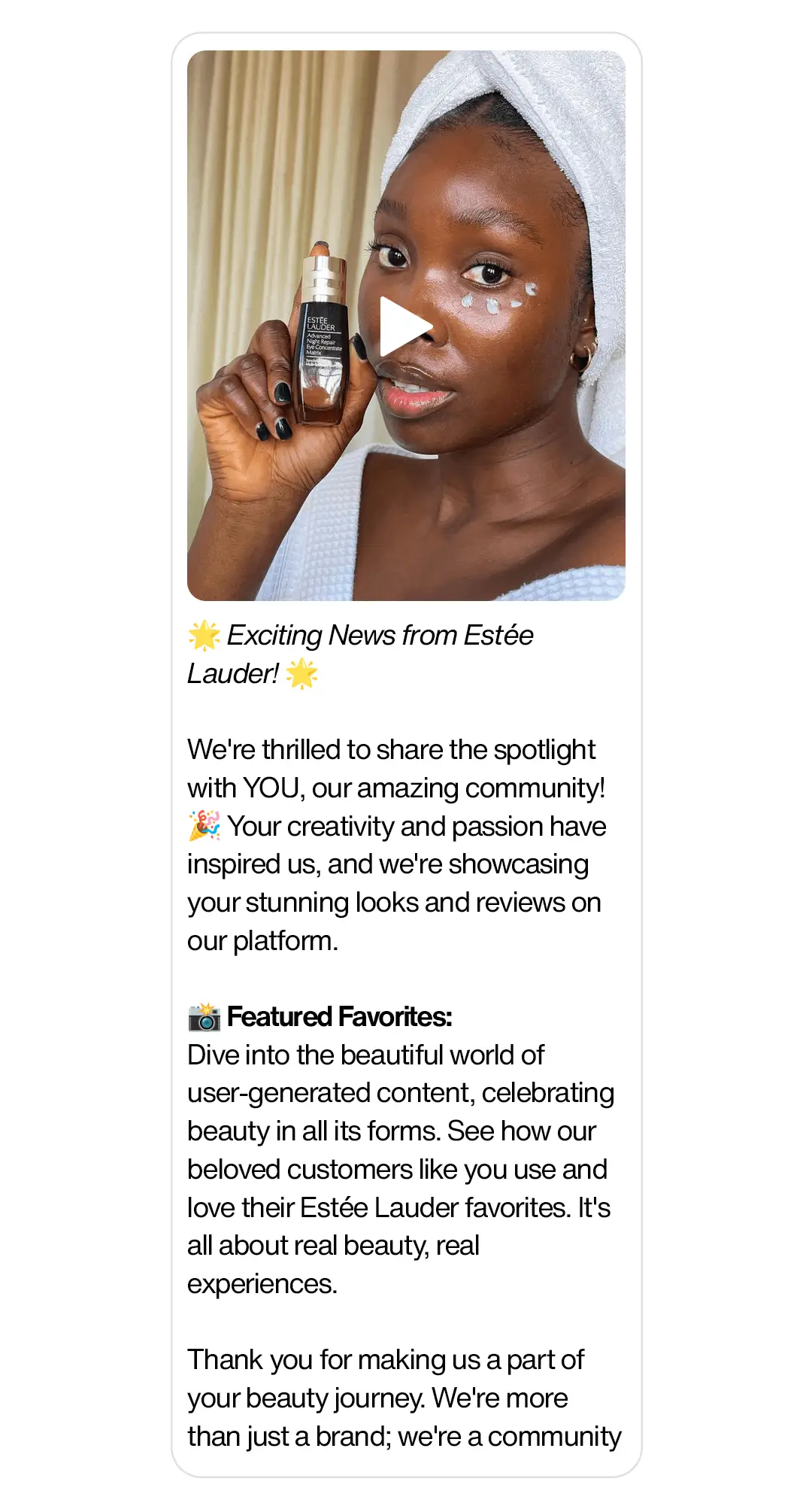
4. Cross-selling Opportunities: Shopify’s analytics identify related products, triggering WhatsApp messages with recommendations.
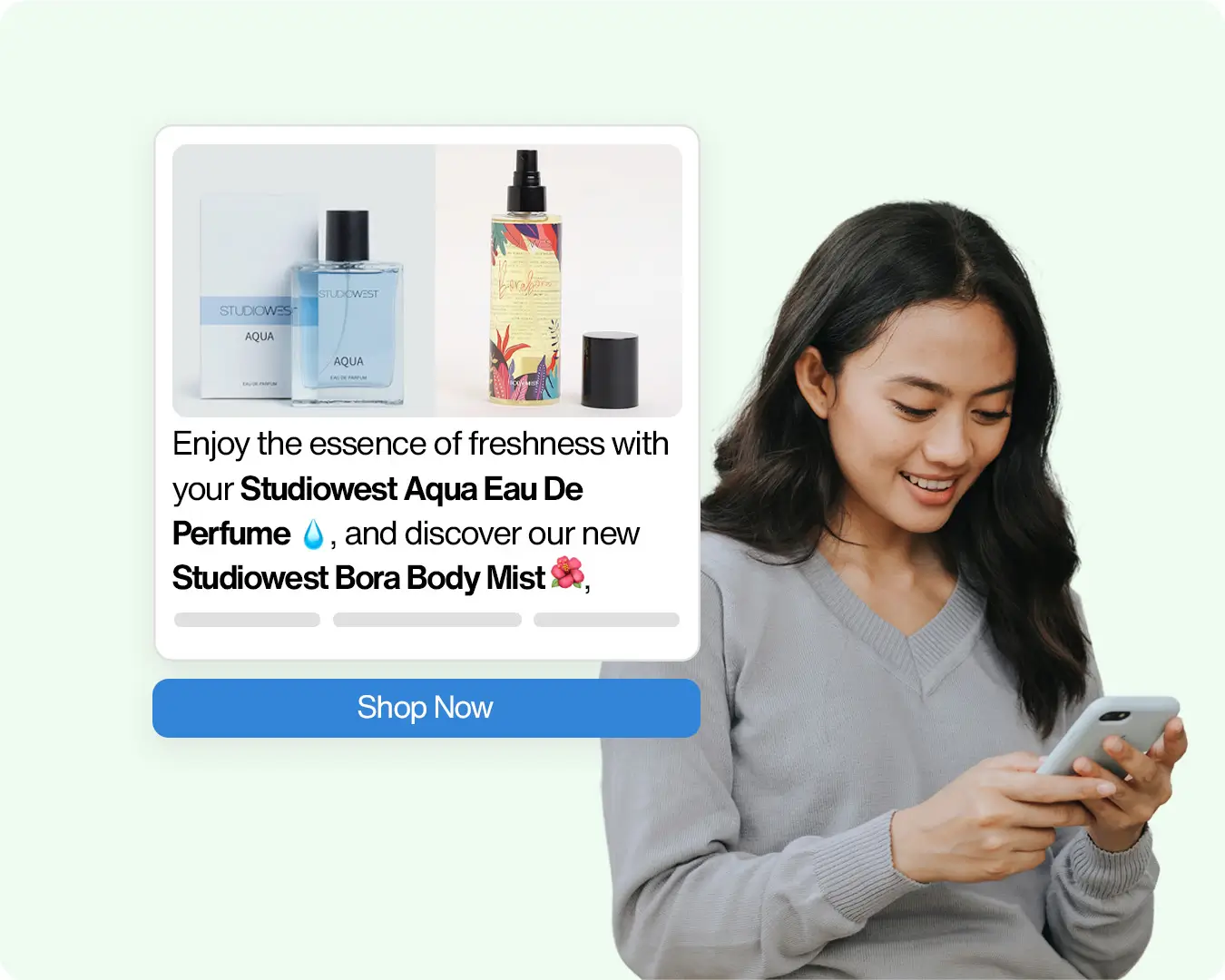
5. Abandoned Cart Reminders: Shopify cart status is monitored, triggering WhatsApp reminders for abandoned carts.
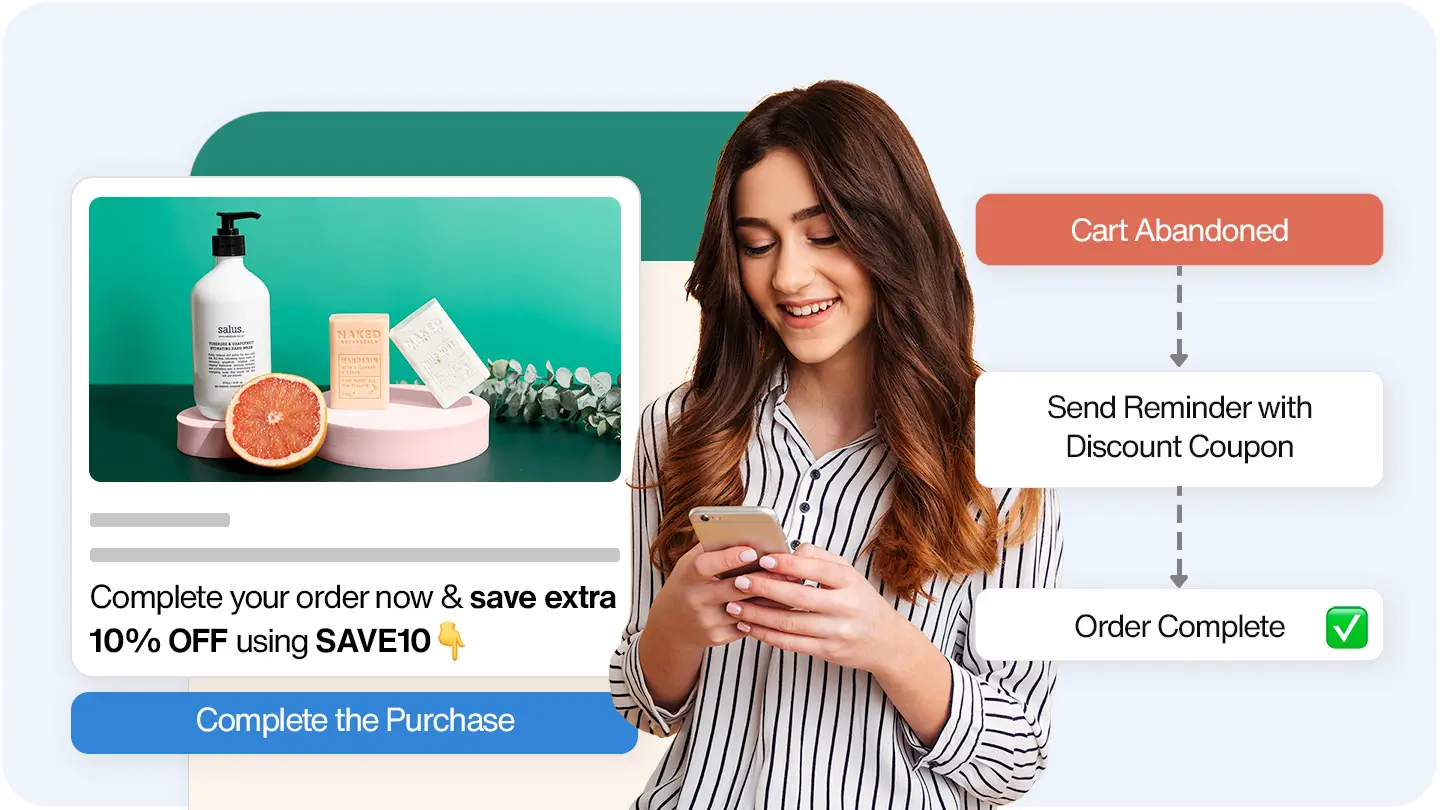
6. Personalized broadcasts: Using customer data from Shopify, such as past purchases or behavior, merchants can segment their audience in WhatsApp and send targeted broadcasts.
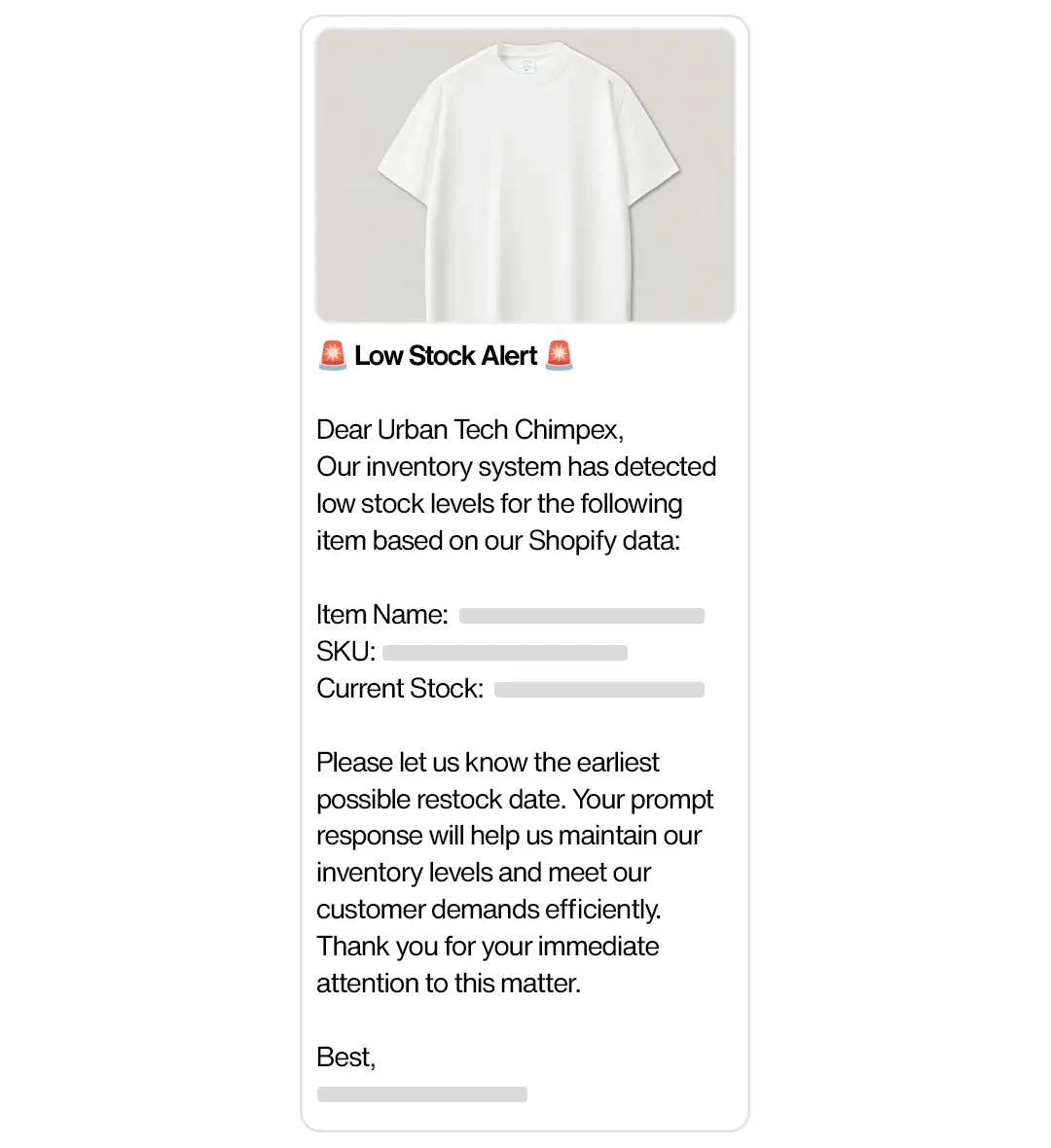
2. Internal Team Coordination: Project management tools, integrated with Shopify, use WhatsApp for team updates on orders and deliveries.
3. Inventory Alerts: Shopify's inventory management system triggers alerts through WhatsApp when stock levels are low.
4. Appointment Scheduling: An appointment booking app integrated with Shopify triggers confirmation and reminder messages via WhatsApp.
5. Live Tracking Integration: Delivery tracking software integrated with Shopify sends live updates through WhatsApp.
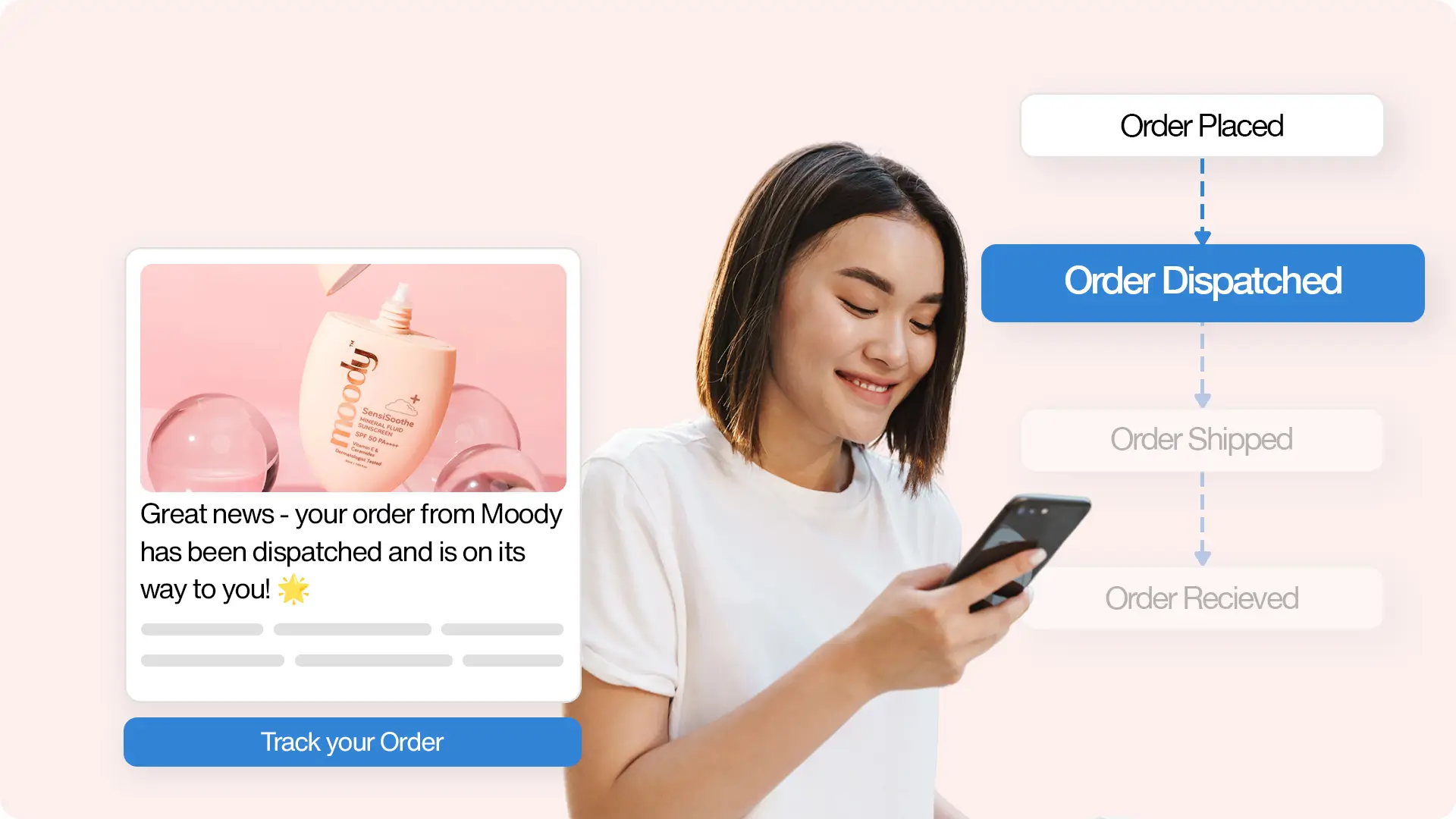
1. Welcome Messages: Shopify customer creation event triggers a welcome message via WhatsApp.
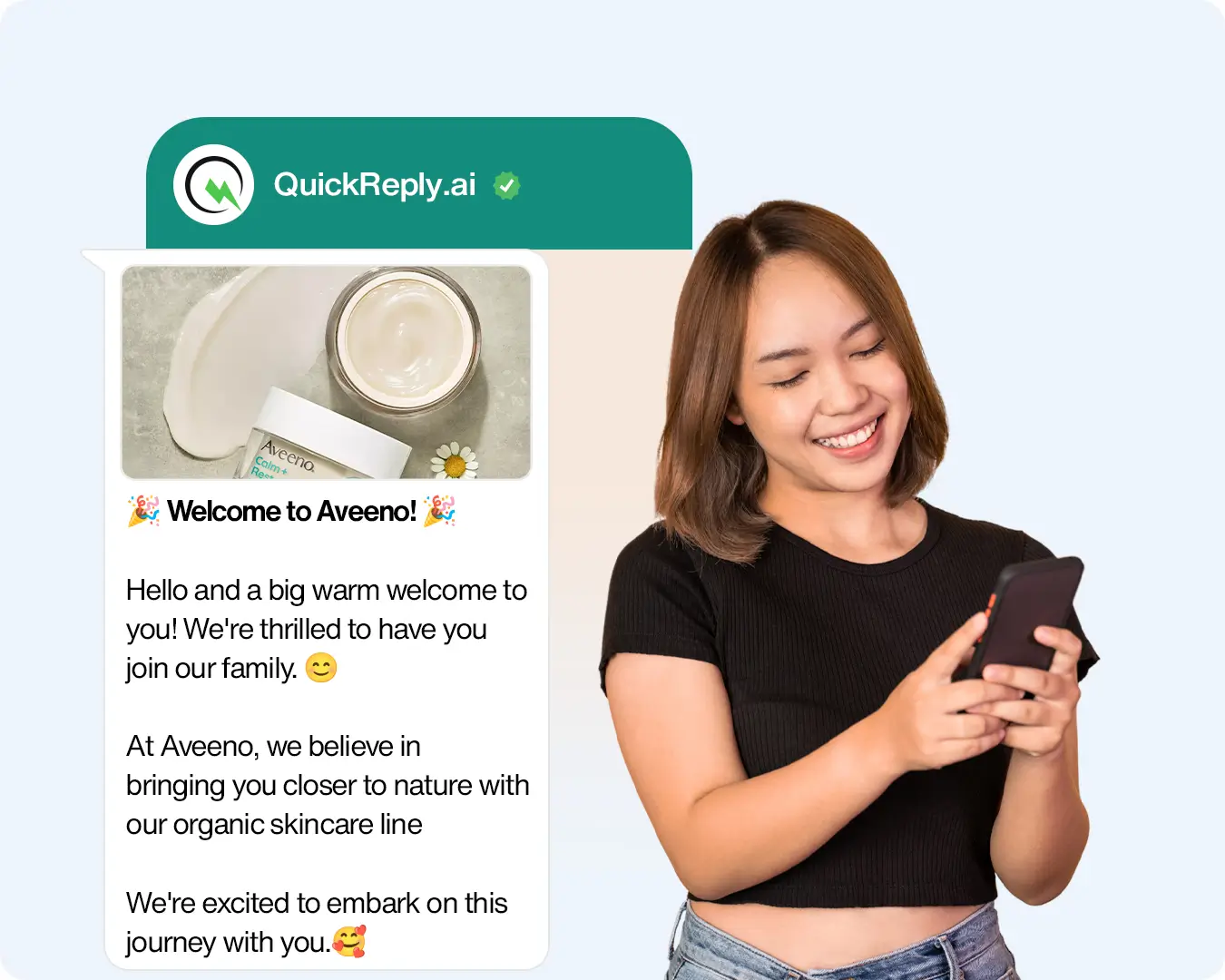
2. Personalized Anniversary Wishes: Date-based triggers from a CRM, utilizing Shopify customer data, for sending personalized wishes.
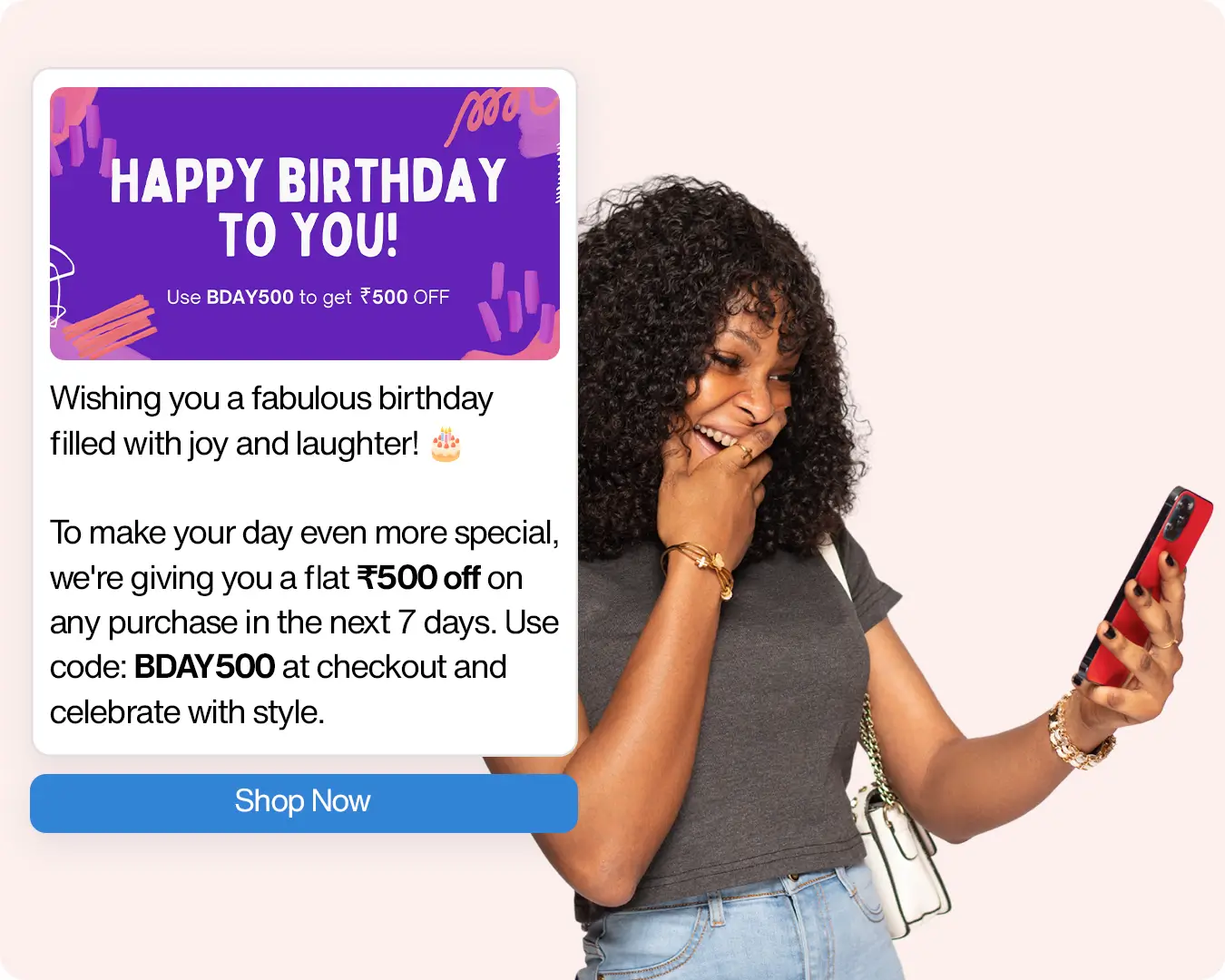
3. Community Building: A community management platform that uses Shopify customer segments to invite users to WhatsApp groups.
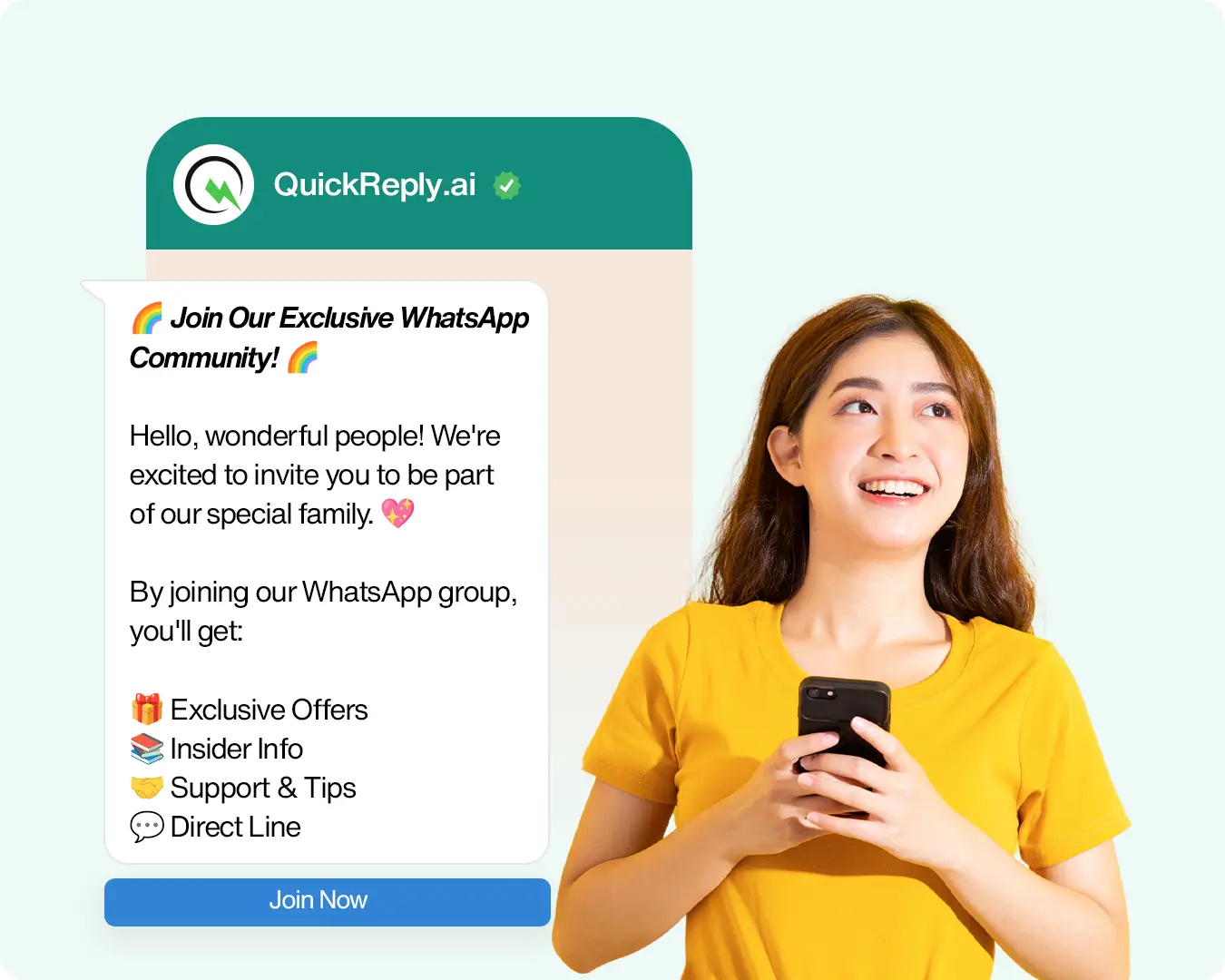
4.Customer Journey Mapping: Marketing automation tools, integrated with Shopify, trigger WhatsApp messages at key journey points.
5. Reward Program Enrollment: Loyalty program software triggers an invitation message to join, based on Shopify purchase history.
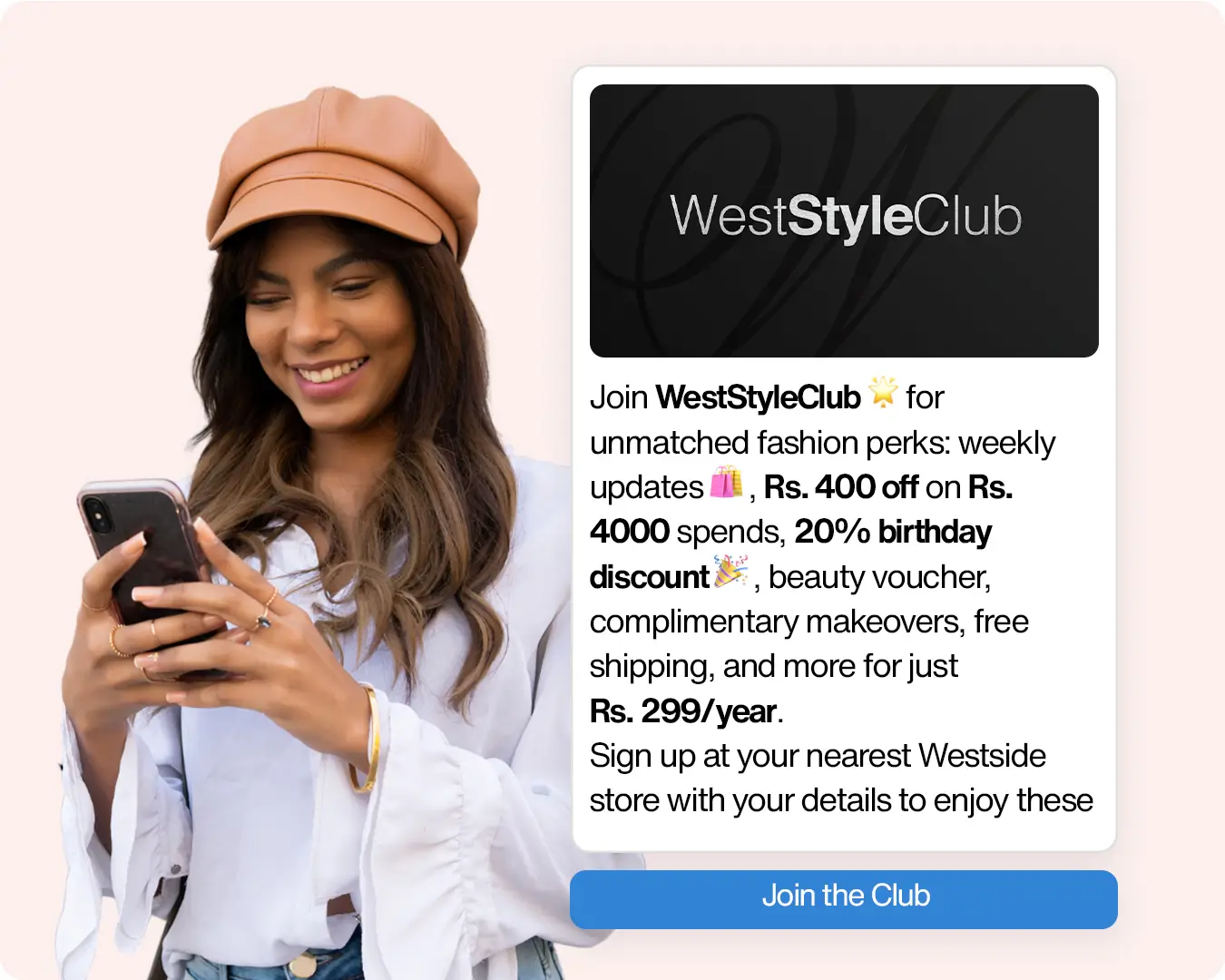
The strategy of creating personalized customer experiences through targeted messaging, hinges on defining specific customer segments that are particularly relevant for a Shopify merchant. Understanding and catering to these segments can significantly enhance the effectiveness of marketing campaigns and customer engagement efforts via WhatsApp.
1. New Customers
2. Repeat Customers
3. High-Value Customers
4. At-Risk Customers
5. Cart Abandoners
6. Seasonal Shoppers
7. Product Category Enthusiasts
8. Feedback Providers
9. Event Attendees
10. Geographic Segments
For each of these segments, the workflow begins by analyzing customer data within Shopify to identify purchasing patterns, engagement levels, and other relevant behaviors. This information is then used to tailor WhatsApp communications, ensuring that each message is relevant and engaging for its intended audience.
Workflow Example: For "Cart Abandoners," Shopify tracks when a customer adds products to their cart but leaves without purchasing. This event triggers an automated, personalized message via WhatsApp, reminding the customer of their cart and offering assistance or incentives to complete the purchase.
By focusing on these customer segments, Shopify merchants can utilize WhatsApp to deliver highly personalized and effective communications, enhancing customer satisfaction, loyalty, and ultimately driving sales.
The following examples not only showcase the versatility and effectiveness of using WhatsApp for various business objectives but also provide valuable insights into how different companies have leveraged QuickReply to drive growth, enhance customer engagement, and streamline operations. From personalized customer service to innovative marketing campaigns, these case studies illustrate the practical applications and success stories of e-commerce businesses utilizing WhatsApp, setting a benchmark for others looking to tap into the platform's potential.
WhatsApp offers a direct line to meet and exceed these demands, providing a personalized and immediate shopping experience that can significantly elevate your brand. The question then is not if you should adopt WhatsApp for your e-commerce business, but how quickly you can implement it to start realizing its benefits.
If you're looking to harness the power of WhatsApp to transform your e-commerce operations, the time to act is now. Don't let your business fall behind in adopting a tool that can offer such a direct and impactful connection with your customers. Contact QuickReply to explore how we can tailor WhatsApp's capabilities to fit your unique business needs, driving growth and fostering lasting customer relationships
Tool and strategies modern teams need to help their companies grow.
Leverage the untapped growth potential of WhatsApp marketing to acquire and retain customers.